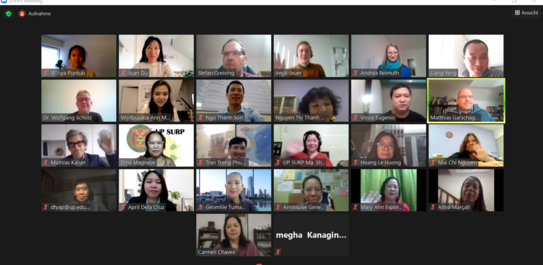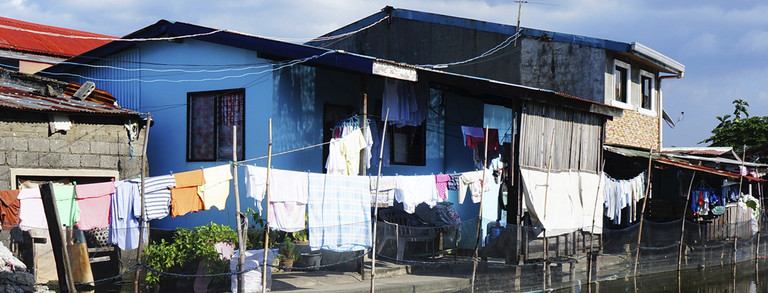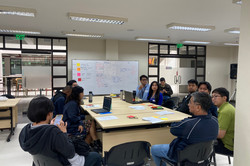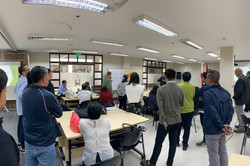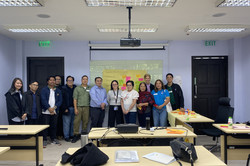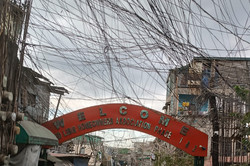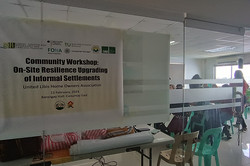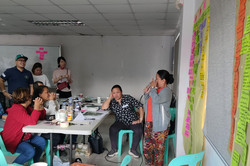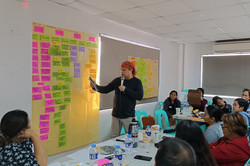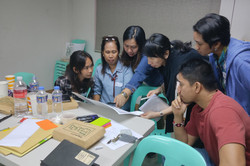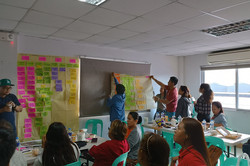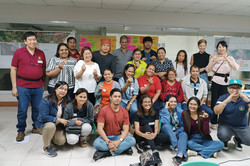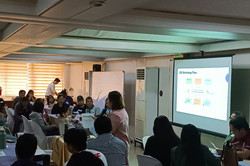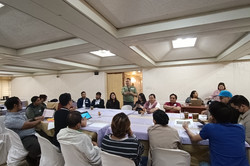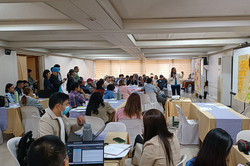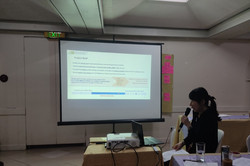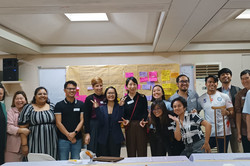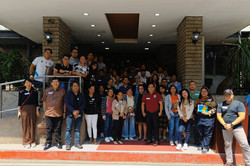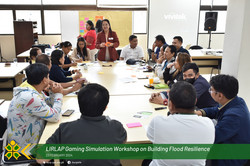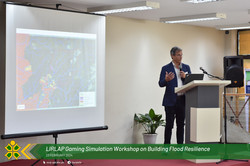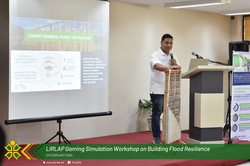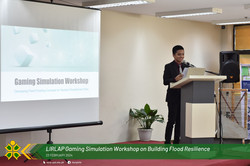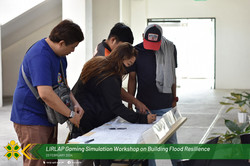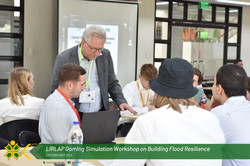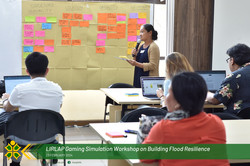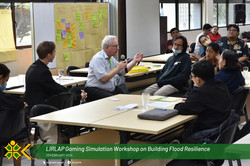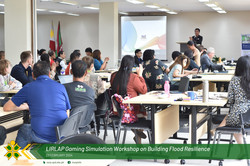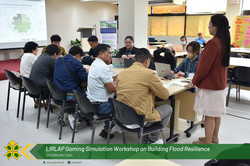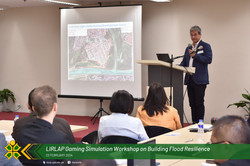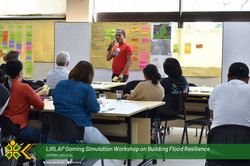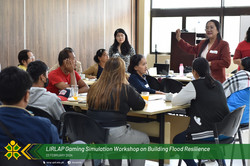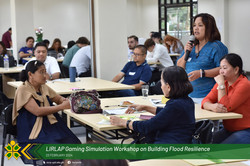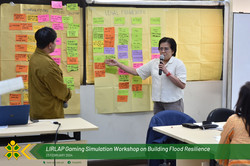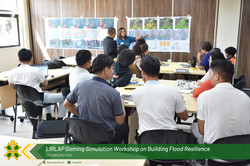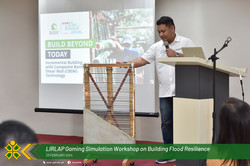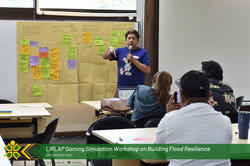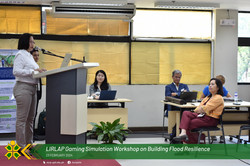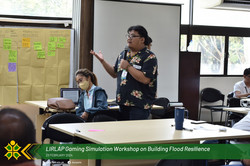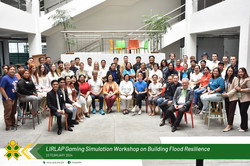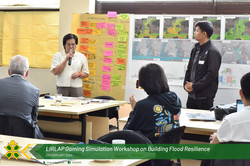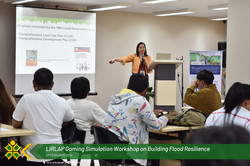News
LIRLAP final event workshops in Hanoi, Bangkok und Manila
Den Auftakt bildete am 18. März ein Workshop an der Vietnam National University of Agriculture in Hanoi. Unter Leitung von Assoc. Prof. Dr. Tran Trong Phuong, Projektleiter und Dekan, diskutierten zahlreiche Experten und Wissenschaftler darunter die Thammasat University in Thailand sowie School of Urban and Regional Planning der University of the Philippines, Hanoi University of Natural Resources and Environment, die Hanoi University of Construction, die University of Architecture, die National Economics University und die Vietnam National University of Science. Darüber hinaus waren staatliche Verwaltungsbehörden vertreten aus der Abteilung für Landmanagement, des Ministeriums für Landwirtschaft und Umwelt sowie Beamte aus den Distrikten Dan Phuong und Ba Dinh.

In seiner Begrüßungsrede betonte Prof. Dr. Pham Van Cuong, Vizepräsident der VNUA, die Bedeutung und die praktischen Auswirkungen des Projekts sowohl für Vietnam als auch für die Vietnam National University of Agriculture, insbesondere im Zusammenhang mit dem Niedergang der innerstädtischen Gebiete in Hanoi (alte kollektive Wohnkomplexe), die sehr anfällig für Naturkatastrophen wie Überschwemmungen, Brand- und Explosionsrisiken, Erdbeben und Stürme sind.

In der Eröffnungsrede betonte Assoc. Prof. Dr. Tran Trong Phuong, die wesentliche Rolle der Fakultät bei der Bewältigung dringender Fragen im Zusammenhang mit Katastrophenrisikomanagement, Klimawandel, Urbanisierung und ökologischer Nachhaltigkeit. Er wies darauf hin, dass Vietnam, wie viele andere Länder auch, einer zunehmenden Bedrohung durch Naturkatastrophen ausgesetzt ist, die durch den Klimawandel noch verstärkt werden. Die rasche Urbanisierung hat diese Herausforderungen weiter verschärft, da die Städte in beispiellosem Tempo wachsen und zusätzlichen Druck auf die Infrastruktur und die Gemeinden ausüben. Diese Entwicklungen unterstreichen den dringenden Bedarf an Forschung und strategischer Planung, um Katastrophenrisiken zu mindern und die Widerstandsfähigkeit gegenüber dem Klimawandel zu stärken. Er merkte an, dass die Umsetzung des LIRLAP-Projekts an der VNUA sehr erfolgreich war. Diese Arbeiten haben zu Vorschlägen für geeignete Lösungen für gefährdete Siedlungen geführt, die ein Gleichgewicht zwischen den Interessen der Bewohner und der nachhaltigen Stadtentwicklungsstrategie von Hanoi gewährleisten. Darüber hinaus wurden im Rahmen des Projekts wertvolle Erfahrungen aus Nachbarländern wie Thailand und den Philippinen geteilt, die eine Referenzbasis für die Formulierung geeigneter Politiken in Vietnam bieten. Die intensiven Diskussionen über die Integration von Resilienz in die Stadtplanung und die Suche nach innovativen Lösungen für die Herausforderungen, vor denen moderne Städte stehen, haben sich als von unschätzbarem Wert erwiesen.
Prof. Dr. Matthias Garschagen, Dr. Olabisi Obiator and Bethany Liss, alle LMU, sowie Hannes Lauer (Stuttgart) und Dr. Juan Du, TU Dortmund stellten die Ergebnisse der Forschung aus den drei Ländern zur Diskussion.
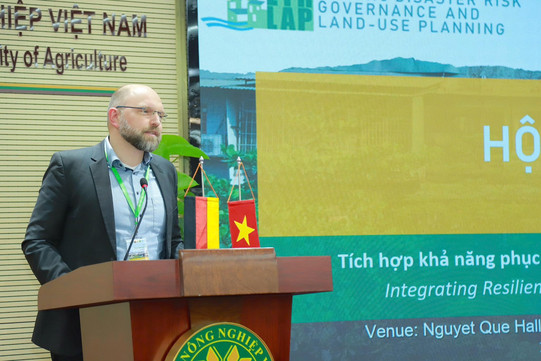
Drei Tage später, am 21. März stand Bangkok im Fokus. Unter Leitung von Assoc. Prof. Dr. Wijitbusaba Mamore, Thammasat Urban Futures and Policy Research Unit führte Dr. Wolfgang Scholz in die Thematiken ein. Im Anschluss stellten Dr. Juan Du, TU Dortmund, Bethany Liss, LMU München, Hannes Lauer, Universität Stuttgart die LIRLAP Ergebnisse and lessons learnt zu Bangkok vor. Den knowledge transfer zwischen Manila und Hanoi präsentierten Evelyn Lorenzo, University of the Philippines mit Dr. Juan Du, TU Dortmund, Dr. Ngo Thanh Son, VNUA Hanoi und Prof. Dr. Mathias Kaiser, Kaiser Ingenieure. Eine zweite wichtige Komponente war der knowledge transfer von Deutschland nach Asien mit Elementen eines Risikobasiertem Wiederaufbau in Deutschland, zu dem Prof. Dr.-Ing. Stefan Greiving, TU Dortmund online zugeschaltet wurde.
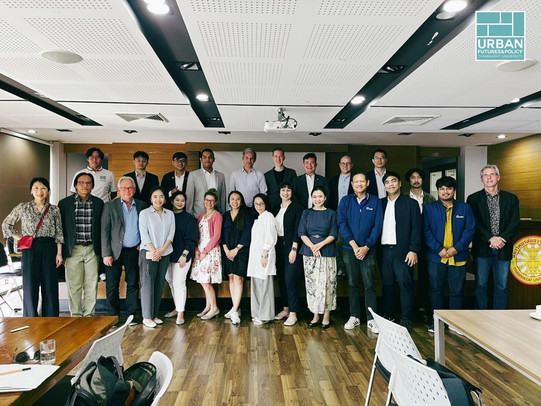
Der Nachmittag des Workshops in Bangkok wurde in zwei roundtables organisiert: Roundtable 1 Current (risk) Trends and Development Pathways of Bangkok and Thailand mit Beiträgen zu Climate Risk and Vulnerabilities assessment, Perception Studies for integrating Nature based Solutions into Housing Strategies for low-income Communities und Transport Resilience sowie zu Geospatial Model and Climate Change. Roundtable 2 thematisierte die Projekte von CODI (Community Organization Development Institute) und dessen Umgang mit Überflutungen sowie der Bangkok Metropolitan Authority mit Projekten für einkommensschwache Haushalte. In interaktiven Arbeitsgruppen wurden die Ergebnisse und deren Übertragbarkeit diskutiert und dem Plenum vorgestellt. Mit den Partnern in Bangkok wird die Fakultät Raumplanung auch über das LIRLAP Projekt hinaus weiter aktiv zusammenarbeiten wie im z.B. im laufenden Projekt Urban Act bei RER.
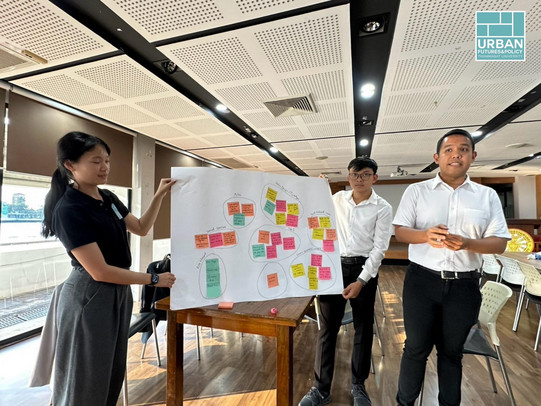
Den Abschluss der Workshopserie bildete die Veranstaltung in Manila. Hier lag der Schwerpunkt auf Risk Trends and Resettlement Options – Present and Future mit Vorträgen zu Informality in Metro Manila, Bangkok and Hanoi, Research areas for Climate change and risk trends und Alternative scenarios for future trends: Experiences from the three cities. Diesem Block folgten praxisorientierte Umsetzungsvorschläge von LIRLAP-Partnerorganisationen und aus Ministerien zu Developing climate-adaptive and resilient Solutions for Upgrading and Resettlement, Approaches generated from the LIRLAP Research Results und Convergence and Differential Capacities for Community Disaster Resilience. Prof. Dr. Mathias Kaiser stellte seine Konzepte aus der Sicht von Architektur und Infrastrukturplanung zu den Fallstudien in Manila vor. Dekanin Dr. Dina C. Magnaye und Dr.-Ing. Wolfgang Scholz ließen die erfolgreichen Trainingskurse für Praktiker und die Einführung eines gemeinsamen Dual PhD Programms Revue passieren.
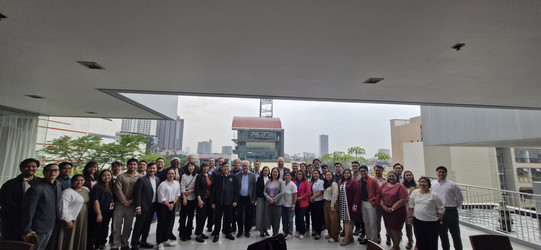
Den Abschluss bildete die offizielle Vorstellung von drei LIRLAP Produkten: Resilient Upgrading Guidelines, Resilient Retreat Guidelines, Mainstreaming Roadmap. Diese wurde in einer Zeremonie offiziell an die Ministerien, Kommunalverwaltungen und Nachbarschaftsorganisationen übergeben.
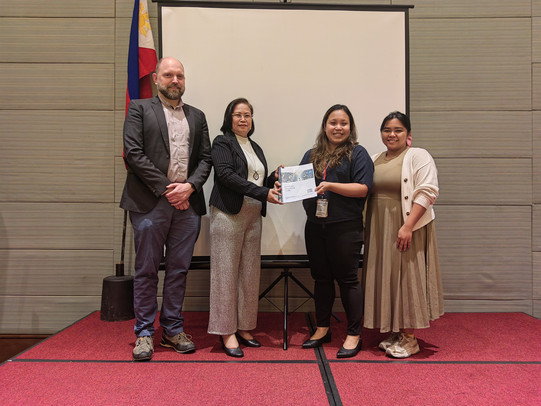
Der abschließende Verbreitungsworkshop für die F&E-Phase sollte dem LIRLAP-Team als Plattform dienen, um die Ergebnisse der auf den einzelnen Arbeitspaketen (WP) basierenden Forschung mit den relevanten Interessengruppen zu teilen. Insbesondere die Übergabe der vorgeschlagenen Maßnahmen zusammen mit den Leitlinien zu deren Umsetzung war einer der Höhepunkte des Programms.
- The Final Dissemination workshop Documentation PDF (12 MB)
LIRLAP Policy Workshop in Manila
On September 17, the LIRLAP team from LMU conducted a policy workshop at the UP Diliman School of Urban and Regional Planning (SURP). The workshop aimed at mainstreaming the results and recommendation of a four year long in-depth analysis on how to improve the in-situ upgrading and resettlement of flood-affected informal settlements in Manila into existing as well as new policy and legislation. For that purpose, concrete entry points and instruments were discussed and checked for their feasibility at the workshop.
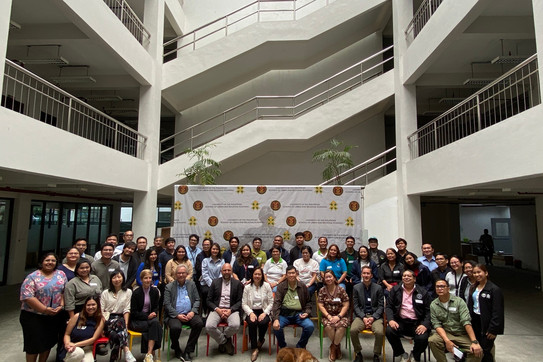
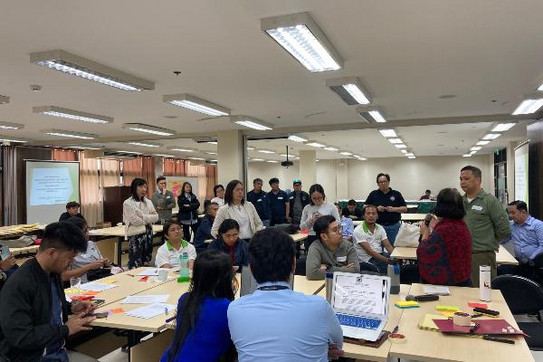
The event brought together a diverse group of around 40 participants, including policymakers, urban development officials, civil society organizations, community members, and academics. This rich mix fostered a dynamic exchange of ideas.
After a warm welcome by Prof. Ma. Sheilah G. Napalang and Prof. Garschagen, Dr. Olabisi Obaitor from LMU kicked off the workshop by presenting the latest modeling results on urban expansion under various Shared Socioeconomic Pathways (SSP). Following this, project partners from the University of Dortmund and Stuttgart shared findings from their pilot studies on resilient upgrading and retreat.
Prof. Matthias Garschagen and Dr. Mia Wannewitz set the stage by outlining the workshop’s objectives, emphasizing the importance of mainstreaming sustainable practices in urban planning. Guided by partners from the School of Urban and Regional Planning (SURP), participants engaged in two interactive work sessions. They identified key entry points for enhancing the mainstreaming of upgrading and resettlement in urban development and proposed suggestions to implement the envisioned changes encompassing implementation instruments, stakeholder roles, and financial planning. The discussions were vibrant and constructive, reflecting the participants' eagerness to bridge sectoral and cultural divides for improving current practices of upgrading and resettlement. The insights gained from this workshop will be instrumental in crafting policy briefs and roadmaps for practical implementation.
LIRLAP WP2 Resilience Upgrading Conducted Community Workshop and Gaming Simulation Workshop, in Metro Manila, February 2024
Crafted by: Team of LIRLAP WP2 Resilience Upgrading, March 2024.
Spearheaded by LIRLAP WP2 Philippine team, research specialists composed of Prof. David Yap, Prof. Sheilah Napalang, and Mr. Vincent Eugenio along with LIRLAP Philippine Project Coordinator Ms. Sonia Islam worked together with Dr. Juan Du from TU Dortmund and Prof. Mathias Kaiser from KaiserIngenieure Dortmund, on two back-to-back workshops during the second week of February 2024. Their overarching mission was to empower local stakeholders and collaboratively explore solutions for the upgrading pilot site ULHOA in Canumay East, Valenzuela city. They aimed to identify innovative and adjustable planning instruments for the pilot site, during its transition from being an informal and disaster-prone area to a permanent, livable and safe settlement at an acceptable level.
On Feb. 13, the barangay and community representatives welcomed WP2 team at the Canumay East Barangay Hall. Community workshop participants were grouped into three cohorts, each tasked with addressing pertinent topics, specifically Incremental Housing and Site Development, Community-Based DRRM and Flood Risks and Interventions. The local technical NGOs RADIC and TAMPEI assisted in facilitating and documenting the outputs of the three groups. Under the overall guidance and moderation of Mr. Vincent Eugenio, the community collectively identified the most pressing developmental challenges and potential proposals for the gaming simulation (GS) workshop.
Incorporating real-world data and building upon the consensus garnered from the community workshop, the GS workshop, a dynamic forum wherein a diverse array of multi-stakeholders convened on Feb 16th was held at the University Hotel in Quezon City. A video message delivered by LIRLAP Project Leader Prof. Stefan Greiving from TU Dortmund accentuated the criticality of stakeholder engagement in shaping the project's trajectory. Philippine Team Leader Prof. Dina Magnaye extended a warm welcome to the attendees. Mr. Vincent Eugenio presented the message in the Endorsement Letter from Representative Francisco Benitez, Chairperson of the Housing Committee of the House of Representatives. The Letter acknowledged the timely importance of on-site resilience upgrading and called for advocacy of all potential partners’ support for LIRLAP. Based on their real-life work duties and experiences, participants were categorized into three Gamers’ Groups for planning decision-making simulation, along with the same three topics of the community workshop. Under the guidance of Prof. Sheilah Napalang, they delved into the complexities of ULHOA and contemplated solutions spanning from retrofitting and upgrading to community-based DRRM and the feasible flood interventions for the pilot site. Prof. Kaiser reported his findings and technical solutions regarding the on-site flood interventions.
A notable highlight of the GS workshop was the afternoon session Workphase of “Conflict Resolutions and Compromise” among all stakeholders, based upon their Gamers’ Group work results. Participants confronted the implications of policy decisions, accentuating the pivotal role of adjusting legal-binding requirements in assimilating proposed solutions into the ongoing development of ULHOA. The negotiations were discussed in a controlled atmosphere and were significantly constructive. Representatives from agencies strived for doable agreements and innovative planning adaptations regarding resilience building of Informal Settler Families (ISFs) and the community’s common future. Together with ULHOA Representative, representatives from the following organizations and government agencies participated: 3rd Engineering District of the Department of Public Works and Highways, the National Grid Corporation of the Philippines, the Presidential Commission for the Urban Poor, Social Housing and Finance Corporation, and the Valenzuela DRRM Office. Utility providers such as MERALCO and Maynilad were also involved, along with CSOs and NGOs including the Foundation for the Development of the Urban Poor, TAMPEI, RADIC, Build Change, Habitat for Humanity, etc., which have been active in ISFs’ housing and retrofitting activities. The outcomes of the GS workshop provided input for Dr. Mia Wannewitz from the Ludwig Maximillian University in informing the policy uptake.
In conclusion, Dr. Juan Du from TU Dortmund underscored the collective resolve towards fostering the feasible overall site development of ULHOA for the LIRLAP project’s forthcoming implementation phase. She emphasized the potential knowledge transfer from the WP2 pilot site in the Philippines to the LIRLAP project context in Vietnam and Bangkok.
© LIRLAP WP2 Resilience Upgrading. All rights reserved.
UP SURP Hosts LIRLAP Gaming Simulation Workshop on Building Flood Resilience
On 23 February 2024, UP SURP hosted the gaming simulation workshop organized by the Linking Disaster Risk Governance and Land-Use Planning (LIRLAP) project to develop flood proofing concepts for Kasiglahan Village, a resettlement area in San Jose, Rodriguez, Rizal.
The workshop gathered a multi-sectoral assembly of participants from national government agencies, local government units, concerned formations, and residents of the area. UP SURP faculty and staff shared their expertise and assisted in the conduct of the two-part gaming simulation which explored various structural means of coping with the flood and investigated the ways in which the proposed measures can be adopted in line with the current practices being implemented.
Read more about the workshop here: https://www.surp.upd.edu.ph/event_8.html
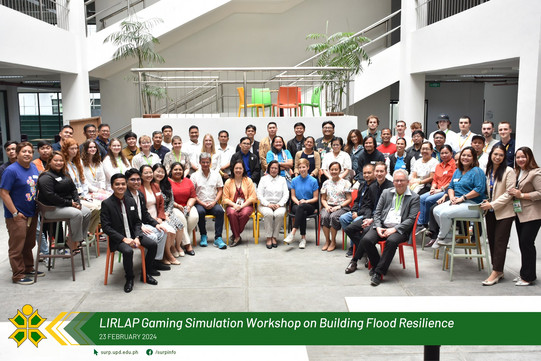
BMBF networking workshop Sustainable Urban Regions and LIRLAP research in Manila
Prof Dr Mathias Garschagen, Dr. Barbara Demeterova, Liss Bethany and doctoral student Lena Grobusch (all LMU Munich), Hannes Lauer, IREUS, University of Stuttgart, and Dr. Wolfgang Scholz, IRPUD, TU Dortmund took part in the SURE Status Seminar 2023 in Bangkok at the end of September 2023. All ten BMBF-funded projects of the Sustainable Urban Regions (SURE) program met there and discussed their project progress, highlights and further upcoming work steps until the beginning of 2025. Dr Wolfgang Scholz also gave one of the two input presentations for the panel discussion "Urban Planning and Decision-Making Towards Sustainability". The focus was on the role that urban planning in the global South can play in climate adaptation measures and how resilient, livable and inclusive cities can be created through forward-looking urban planning. However, the problems of climate adaptation under conditions of poverty and informality must also be recognised as crucial.
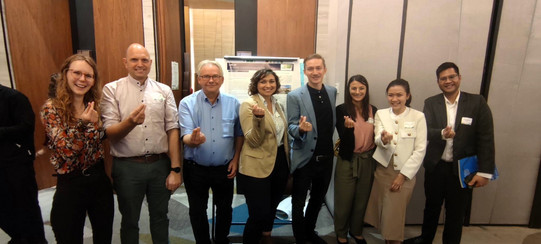
In addition to the exchange with the other projects, which also work in cities in Southeast Asia, the LIRLAP team was also pleased to see the project partners from Thamassat University Prof. Dr. Wijitbusaba (Ann) Marome and Nontarit Bejrananda again and took the opportunity for intensive work phases.
Following the two-day conference in Bangkok, the LIRLAP team travelled on to Manila for project work. Here, Dr Wolfgang Scholz discussed with Dean Prof. Dr Dina Magnaye and the head of the PhD program Prof. Dr Karen Ja-goon on further steps of the joint doctoral program of the Faculty of Spatial Planning with the School of Urban and Regional Planning and to explore funding opportunities for students with the local representative of the DAAD. In preparation for the pilot study on resilient resettlement areas and the ongoing F-project F03, Hannes Lauer discussed options for collaboration with Analyn Borbe, Vice President of the local Montalban Action Group and with the BASE Bahay Foundation, which is funded by the Hilti Foundation.
Exchange among Researchers from Germany and Southeast Asia: Approaches to Reconstruction and Upgrading in light of climate Resilience.
Many parts of Southeast Asia are regularly flooded - such as by monsoon rains or typhoons. Heavy rainfall is also on the increase in Germany. At the international conference of recovery and reconstruction hosted by IRPUD, Department of Spatial Planning, Technical University of Dortmund, researchers from Germany and Asia discussed different approaches being taken in Germany and Asian countries to reconstruction and how science can support more resilient construction (full program available: Kahr Programm.pdf).
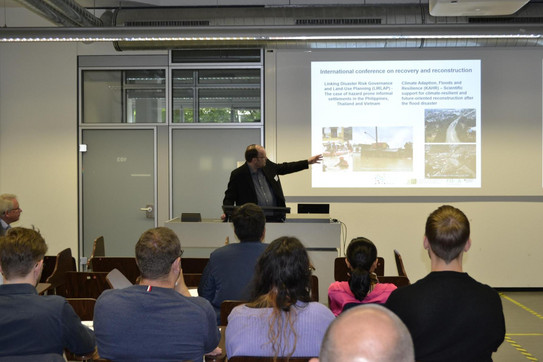
In order to mutually benefit from current findings - also across national borders - around 50 researchers from Germany, Japan, Vietnam, Thailand, Japan and the Philippines met at the Department of Spatial Planning, Technical University of Dortmund on July 4, 2023. The event focused on discussions of research results, lessons learned, and successful responses to hazard events, especially after floods. Topics ranged from exchanges on hazard and risk and their impacts under different geo-conditions, potential measures for on-site upgrading for those disaster-prone settlements, and strategies for modernization and resettlement. How to implement disaster risk management at different political levels was also on the agenda of the international conference.
In Germany, the KAHR project (see https://www.hochwasser-kahr.de/index.php/en ), is addressing the question of how can reconstruction after natural disasters be designed to minimize damage in future events: 13 partners from science and practice including IRPUD, are providing advice and research to support reconstruction in Rhineland-Palatinate and North Rhine-Westphalia after the 2021 flood disaster (see https://www.hochwasser-kahr.de/index.php/en ). In Southeast Asia and China, BMBF is supporting the sustainable development of urban regions through its SURE (Sustainable Development of Urban Regions) funding measure. Among other topics, this measure addresses the issue of how prudent risk management can be created in the event of extreme weather events and natural disasters. The IRPUD project LIRLAP plays here a fundamental role, focussing on three countries in the region.
Adapting reconstruction to natural events such as floods and inundations.
The BMBF-funded project LIRLAP (Linking Disaster Risk Governance and Land-Use Planning) investigates urban risk governance and risk-based land use planning, so to reduce inhabitants’ socio-economic vulnerability and enhance community adaptive capacity for resilience building. LIRLAP project focuses particularly on those disaster-prone informal settlements in the Philippines, Vietnam, and Thailand by collaborating with local residents to establish locally viable climate-resilient upgrading and resettlement strategies.
The LIRLAP research partner Ngo Thanh Son from the Vietnam National University of Agriculture (VNUA) presented in his lecture what structural upgrading solutions are focused on in case resettlement is not possible to protect property and livelihood in case of flooding. For instance, it has proven effective to build houses on stilts or to construct the first floor so that it can be flooded through in the event of a flood. In this way, the property can be protected by a stable roof, which can also be used to evacuate the residents. The best possible protection is all the more important here since most of the local population has no insurance.
For the Philippine team of LIRLAP, Prof. Dr. Ma. Sheilah G. Napalang focussed on disaster coping and adaptive capacities of local communities and presented lessons from hazard-prone informal settlements in the context of resilience upgrading in Metro Manila. It is based on extensive fieldwork of the LIRLAP team and revealed the importance of local leadership, formal and non-formal community support systems and social cohesion.
In contrast to many parts of Asia, natural disasters are less frequent in Germany, but they are on the rise, partly due to the effects of climate change. The 2021 floods in Rhineland-Palatinate and North Rhine-Westphalia caused billions of euros in damage. When it comes to rebuilding houses and infrastructure, it is clear how different the approaches are in the various countries, emphasized Prof. Dr. Holger Schüttrumpf, RWTH Aachen and representative for the KAHR project. In Germany, for example, resettlement hardly plays a role in contrast to Japan, Vietnam, and the Philippines. Everyone agreed that even if reconstruction is implemented differently at the local level, the aim everywhere is to make the buildings and infrastructure as resilient as possible to future natural events during reconstruction.
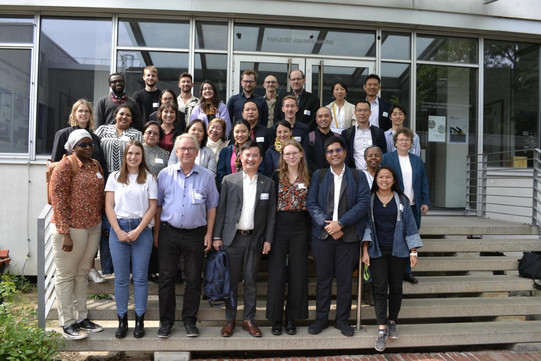
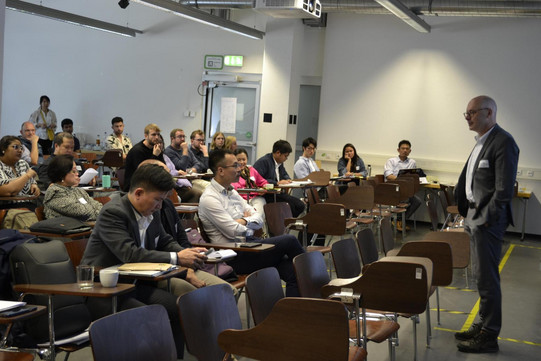
International Conference on recovery and reconstruction
As a joint event of the LIRLAP (Linking disaster risk governance and land-use planning, see https://lirlap.raumplanung.tu-dortmund.de) and the KAHR (Climate Adaptation, Flood, Resilience, see https://www.hochwasser-kahr.de/index.php/enlir) projects, an international conference on recovery and reconstruction will take place at TU Dortmund University on July 4th, 2023. Both projects are funded by the German Federal Ministry of Education and Research (BMBF).
Aim is to discuss research results, lessons learned and successful interventions from hazard events, especially flooding. Topics are sharing of problem-solving expertise, approaches of hazard and risk modelling, urban development and mainstreaming approaches and strategies for upgrading and resettlement as well as mainstreaming of disaster risk management at all policy levels.
Now the final conference program is fixed. Many exciting presentations are planned - and in between there is always time for discussions. We would therefore be very happy to welcome more participants. Please register via Wolfgang Scholz until June 28th at (wolfgang.scholz@tu-dortmund.de).
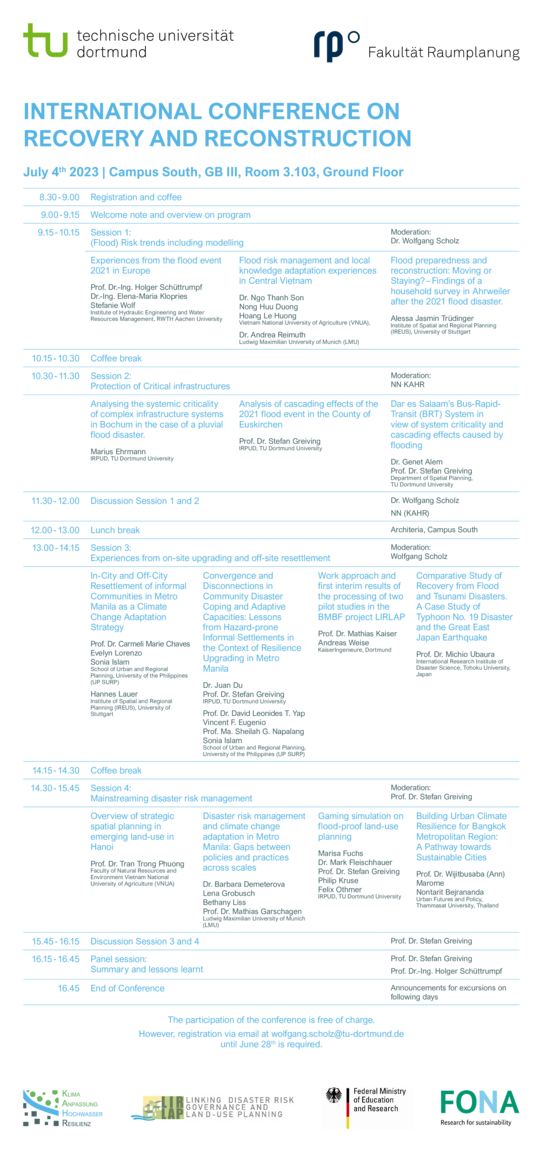
LIRLAP workshops and fieldwork in Bangkok, Hanoi and Manila
The German LIRLAP team with participants from the Institute for Spatial Planning (IRPUD) with Prof. Dr. Stefan Greiving, Dr. Juan Du and Dr. Wolfgang Scholz, the Institute for Spatial Planning and Regional Planning of the University of Stuttgart (Hannes Lauer) and the Research Group Human-Environment Relations of the Institute of Geography of the Ludwig-Maximilians-University of Munich (Antje Katschner) as well as Prof. Dr. Mathias Kaiser (kaiseringeniere) , spent two weeks in Southeast Asia to identify possible case studies in Bangkok and Hanoi, to plan further work steps with local partners and to conduct target group interviews in selected settlements.
LIRLAP workshops and fieldwork in Bangkok
The first stop was the Future Research Unit and Policy of Thammasat University (UFP) in Bangkok from 22 to 24 September 2022. On 22 September, UFP organised an expert forum to discuss and share knowledge with participants from research institutes and agencies in the field of urban development and housing on the impacts of climate change and strategies to mitigate them in the future. Other topics included disaster risk management and the development of low-income housing suitable for the Thai context. Keynote speakers were Ass. Prof. Dr. Tawida Kamonwetch, Deputy Governor of Bangkok, Dr. Khun Thanat Natthapornphong, Deputy Director of the Community Organisation Development Institute (CODI), and Dr. Sitthiporn Charnnin, Director of the Space Technology Research Center Office of Space Technology Development and Geographic Information.
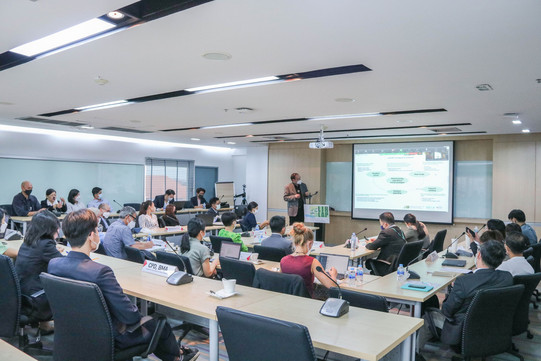
Over the next two days, UFP, the teams from Germany together with Dr Khun Thanat Natthapornphong (CODI) and teams of architects and engineers explored four settlements in Bangkok where CODI is implementing resilience improvement projects: Laksi Community 99, Pracha Ruamchai Community 2, Men's Khlong Bang Bua Community and Pathum Thani Community in Pathum Thani province. According to CODI, there are currently 98 low-income communities in floodplains in Bangkok and surrounding provinces with 10,825 buildings and 36,841 people. This number could increase due to climate change risks. The aim was to learn more about the history and development of the settlements in discussions with residents' representatives and local cooperatives, to visit the newly built houses and to study the construction measures carried out and their construction techniques. Other focal points were the financing model for housing construction and how the local government's support for the project was structured.
During this field study, the differences between the original condition of the buildings and the improvement of the quality of life for the population after the new construction measures, as well as the efficiency of drainage and wastewater treatment, became clear. LIRLAP will therefore analyse and evaluate upgrading approaches in Manila (Philippines), Hanoi (Vietnam) and Bangkok (Thailand) in a joint research process to increase the resilience of planning measures.
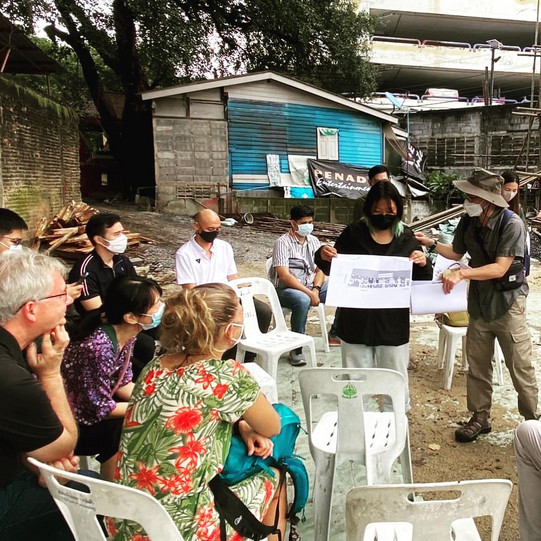
LIRLAP workshops and fieldwork in Hanoi
From 26 to 28 September, the LIRLAP team discussed current urbanisation trends with its partner from the Vietnamese National University of Agriculture (VNUA) in Hanoi. The first day started with input lectures from local experts: "Characteristics of urbanisation in Hanoi: changes in landscape patterns through space and time" by Dr. Nong Huu Duong and "Socio-demographic aspects of urbanisation and urban development in HCMC" by Assoc. Prof. Le Thanh Sang. The second part of the first day focused on an expert consultation with a scenario validation dialogue to discuss the narratives of socio-economic development pathways (SSP) for urbanisation in Vietnam.
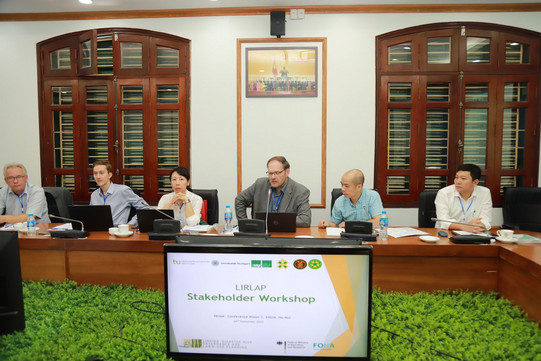
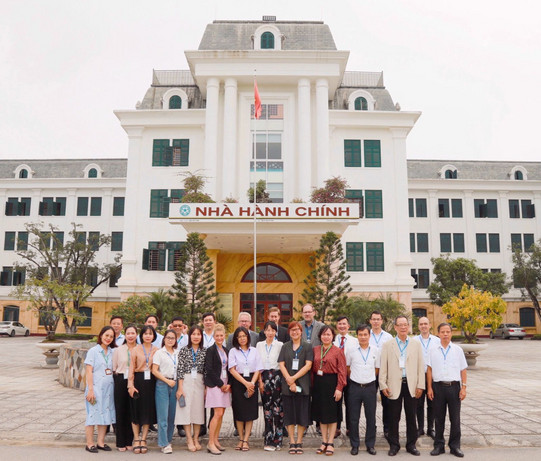
A third step involved the selection of case studies: settlements in floodplains or highly vulnerable (informal) settlements that either need to be upgraded or potentially relocated. LIRLAP also learned about current upgrading activities on the ground and climate resilience measures in Vietnam. Days two and three focused on field studies and discussions with community representatives and residents, as well as visits to informal building upgrades in social housing (KTT Thành Công in the city centre) and flood-affected riverside residential areas (Phường Phúc Xá and Long Bien) in Hanoi.
LIRLAP workshops and fieldwork in Manila
From 30 September to 5 October, the LIRLAP team continued its research in Manila. On Friday 30 September, the LIRLAP LMU team conducted its scenario workshop on three national narratives and a discussion on the driving forces in the form of scenarios, including a World Café. The weekend was reserved for field research activities in informal settlements and resettlement areas with transect walks, community meetings and focus group discussions in Tumana, Kasiglahan Village, Estero De San Miguel and Isla Puting Bato, and St Therese.
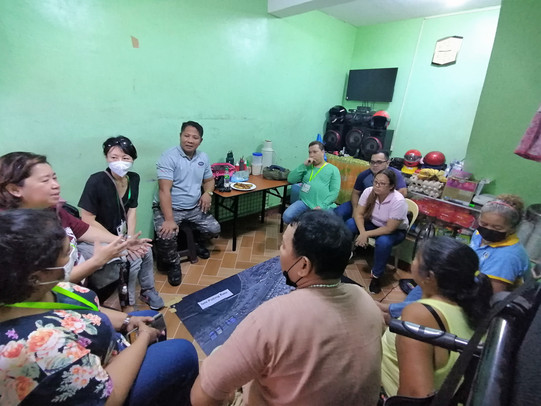
On 3 October, the entire LIRLAP team, including partners from Bangkok (UFP) and Hanoi (VNUA), held its strategy workshop at the School of Urban and Regional Planning, University of the Philippines Diliman (UP SURP) to discuss the status quo of each work package, assess the outcomes of the work packages and plan future activities for the period 2023-2025. After the outbreak of the pandemic, it was the first time that all members could be present at a workshop.
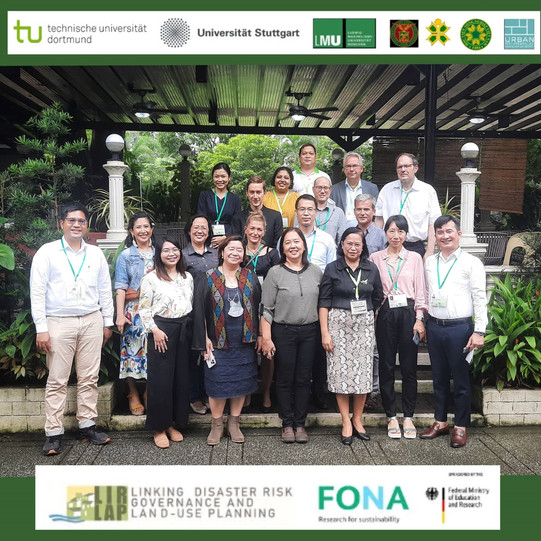
Productive and insightful discussions were held on strengthening the resilience of vulnerable settlements and LIRLAP is confident to take these forward and implement them. Another important topic was exploring options for mainstreaming enhancement and retreat strategies into national and local policy decisions. In the following two days, the main findings of the field analyses of WP 2 (upgrading of informal settlements) and WP 3 (resilient retreat) from March to June 2022 were presented and discussed with community representatives to triangulate and validate the findings. The LIRLAP team members also discussed with experts about the current housing policies, upgrading projects and discussed with Base Bahay Foundation, which is supported by Hilti Foundation, a possible future collaboration in implementing resilient upgrading and resettlement projects.
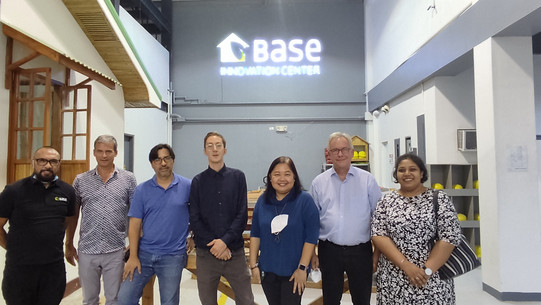
LIRLAP - Fieldwork in Metro Manila, Phillipines

Project members from the University of the Philippines, TU Dortmund, University of Stuttgart and the engineering company KaiserIngenieure gathered in Metro Manila for field activities. The team visited 16 settlements in the National Capital Region and surrounding provinces– among them 10 resettlement sites and 6 informal settlements. Part of these visits were group discussions with the Homeowner Associations, the local majors or settlement leaders, urban poor groups and NGOs as well as transect walks through the settlements.
In the meantime, the large-scale household survey has started and will be conducted in the 10 resettlement sites. A team of 12 professional enumerators began with the survey in Mahangghan Residences, a so-called People’s Plans resettlement site. The survey investigates differences between resettlement approaches and is intended to provide data for the development of a resilient retreat index. This index should be able to monitor resettlement activities and allow estimations on how resettlement contributed to or interrupted the process of resilience building. The focus is on different resilience dimensions. Namely, resilient settlements, the exposure and architecture component. Resilient livelihoods, focussing on livelihood capitals. And resilient processes, investigating governance and participation options.
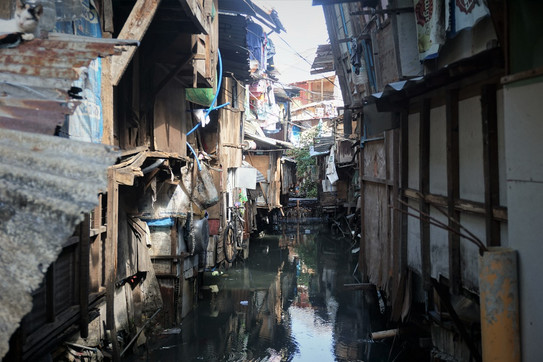
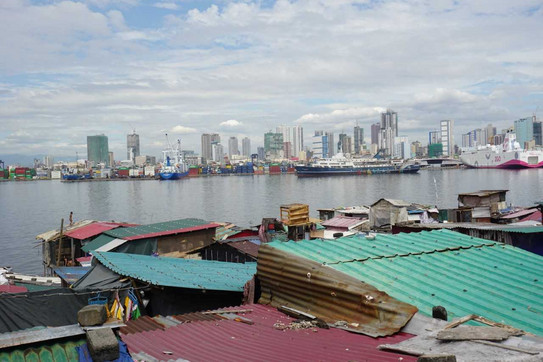
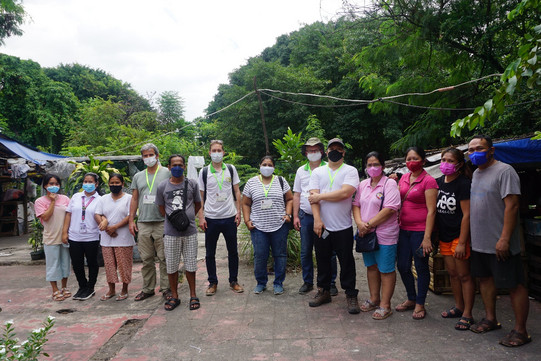
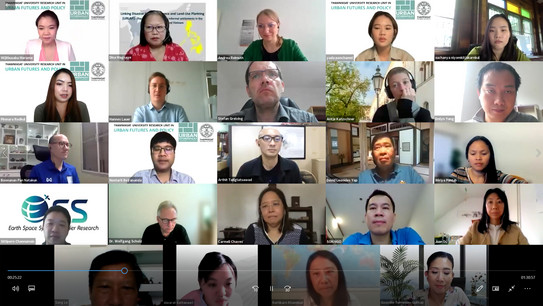
Virtual Stakeholder Workshops with Thailand and Vietnam Partner
On July 16th and 22nd, 2021 the project conducted its first two online stakeholder workshops respectively with Thailand and Vietnam partner. The aim was to introduce the project and discuss future joint work steps in the two new partner countries and to tackle the following topics with the multi-stakeholders:
- How are disaster risk, climate change adaptation and urban planning interlinked in Thailand and Vietnam respectively?
- How is informality and are informal settlements defined?
- Where are hotspots of informal settlements or poor urban groups?
- Where and what are hotspots and gaps for upgrading?
- Where and what hotspots and gaps for retreat (resettlement and relocation)
The 30 to 50 representatives of planning authorities, ministries and NGOs from Thailand and Vietnam discussed in detail the above issues with the project partners of Urban Futures and Policy Research Unit (UFP) at the Thammasat University, Bangkok; and the Faculty of Natural Resources and Environment of the Vietnam National University of Agriculture (VNUA); as well as the LIRLAP partners of the School of Urban and Regional Planning (SURP), University of the Philippines Diliman; the Institute for Spatial Planning and Development Planning of the University of Stuttgart (IREUS); and the Unit on Human- Environment-Relations of the Ludwig-Maximilians University in Munich (LMU). The topics of disaster risk reduction, climate change adaptation, land use planning and mainstreaming resilient upgrading and retreat have been extensively covered during both workshops, particularly in terms of informal settlements and the urban poor. Additionally, the dual PhD program gained resonance among multi-stakeholders regarding capacity building. Based on both workshop input, a way-forward on networking and concrete work steps and mechanism are expected to be further built up.
March 2021:
LIRLAP conducted its internal kick-off Workshop in the R&D phase together with the new partners in Thailand (Urban Futures & Policy Research Unit (UFP) of Thammasat University) and Vietnam (Faculty of Land Management at the Vietnam National University of Agriculture (VNUA)) online on March 9th 2021.
Aim of the workshop was to familiarize all partners with the goals and content of LIRLAPs working packages for the R&D phase, to establish well-working modes of collaboration and to plan further activities. For July 2021 online kick-off workshops with local stakeholders are scheduled in Thailand and Vietnam.
